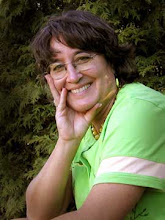September 9. A grouse wakes me, clucking her pleasure at being alive. I can eat huckleberries without leaving my sleeping bag. No one knows I’m here.
By 8:30 in the morning it is warm and still. The meadows are a-hum with bee noise. I watch a bumblebee crawl deep into the narrow indigo gentian. In the process of obtaining food for herself and the next generation, she fertilizes the source of her food so that the flower, too, will bear progeny. However, in doing so, the bee is for a moment vulnerable. Deep inside the blossom, backside exposed, she cannot see her enemy. She risks her life to live. Mitakuye oyasin!
We insulate ourselves from life, fearing the risks. We avoid plunging headlong into the flower, into the depths. My parents did not understand my need to do this “stupid” thing. My mother wrote me and said for my son’s sake I shouldn’t do this. I tell her it is for my son that I must do it. To risk is to grow, and failure is a lesson learned, not proof that I shouldn’t have tried.
I watch the bee. There is harmony in what she does. Do we plan for regeneration of that which we take from nature? We dig, cultivate, harvest, cut, burn, and deposit our waste in Mother Earth. We know it is almost too late to save her, yet we still do it. We do not know enough to respect the rest of creation. We are too busy making money, too busy using up the world.
To each person of strong body, I say “Come. Be alone here for 12 days and nights, and learn what respect means.”
There are sweet huckleberry smells here, mature odors, scents of life and living. Soon the ripeness of decay will permeate these meadows. Snow will follow and will seal away life until July. This is a harsh world. I am privileged to see it at its most fruitful.
I wish to wash my hair, but not in these turbid pools. It would be profane to disturb the tadpoles with chemicals. I will wash it later, in a running stream that will cleanse itself in a few moments of roiling passion.
A helicopter delivers supplies to the ranger station, a rude but necessary intrusion. Two Army Reserve Chinooks come and go all afternoon, removing spent fuel tanks and debris, bringing staples and firewood logs.
A gray hawk circles me. Does God marvel at her, too? Yes, because I see her. God is in me and I am in Him. Or Her. Whoever. God needs us, too. I understand better now.
At 1:30 I leave the meadows and cross an endless suspension bridge over the raging Tahoma Creek. I think of the Jökulhlaups – glacial outbursts that frequently tear through here, moving boulders and uprooting trees. This phenomenon is the reason the park’s West Side Road has been closed, leaving me in greater isolation.
I trudge upward through the forest, and at the top of Emerald Ridge I walk alongside the Tahoma Glacier. It is sheathed in a rough skin of rock the color of raw umber, and pieces continually roll off. The noise is, at times, disturbing. I stay here awhile, knowing it will be the last sun before my descent into the forest.
I read Matthew Fox’s “Original Blessing.” He says the Native Americans define cosmic wisdom as this: that the people may live. “Living implies beauty, freedom of choice, giving birth, discipline, celebration. Living is not the same as going shopping or buying, nor is it the same as making a nest in which to escape the sufferings of one another. Living has something to do with Eros, love of life, and with the love of others’ lives, others’ right to Eros and dignity.”
Black Elk, an Oglala Sioux, tells about the ritual of the sweat lodge, a rite of purification and prayer. Within a womb of willow branches and blankets, the Indian people gather to pray. Water is poured over hot stones and steam brings forth impurities from the body.
When the central altar is constructed, where the heated rocks will be placed, there is prayer. “O Grandfather and Father Wakan-Tanka, maker of all that is, who always has been, behold me! And you, Grandmother and Mother Earth…we have come from You, we are a part of You, and we know that our bodies will return to You…I think of Wakan-Tanka, with whom our spirits become as one. By purifying myself in this way, I wish to make myself worthy of you, that my people may live!”
The ritual of the sweat lodge, inipi, is like a vision quest. There is separation from the real world, a return to the womb and its darkness, a cry for help (“We wish to live again. Help us!”), and rebirth into the Light.
I reach the South Puyallup Camp and find it as dark and dismal as its reputation. Nearby on a damp cliff are stripes of columnar basalt, honed as if by a carpenter’s plane, evenly serrated and stacked. Some of the columns lie shattered in the ferns, reminiscent of Greek ruins.
I realize with dread that I will be alone in this godforsaken place. The closest person is the ranger at Indian Henry’s, four miles, two ridges, and a suspension bridge away. I set my sleeping bag on a ledge over the river, with barely room to stretch my legs. Evil spirits are about, and I hunker in my sleeping bag wondering if a bear will get my food. I tell God I don’t like it here, that I am just a bit afraid, but I know “She’ll be all right.”
The rush of the impatient
I am near the birthplace of the river that flows through
I spend an uneasy night beside this significant river.


No comments:
Post a Comment